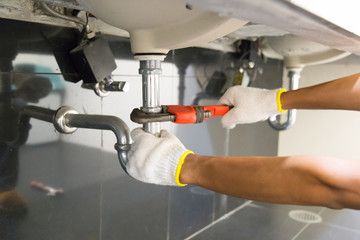What Does it Take to Become a Plumber?
Plumbing is a versatile career path, with various potential paths to success. There are many different plumbing jobs, but they require a certain amount of training and experience. These professionals are typically able to read blueprints, communicate their findings and understand the overall goal of a project. They must be knowledgeable about local codes and be able to work with a team of other professionals to ensure that the job is done properly.

Plumber is responsible for the plumbing system inside a home or business and is skilled at repairing and installing different systems. They also work with pipes that carry natural gas. Plumbing jobs are generally minor and include plumbing fixtures, sewer systems, and drain cleaning. Plumbers must have excellent mechanical skills, be physically fit, and have a basic understanding of math. Plumbers must also be able to read blueprints and understand code requirements.
When hiring a plumber, get a quote from several different companies. Make sure that you select a plumber with experience in your specific type of plumbing. Licensed plumbers usually charge more than unlicensed ones. However, plumbers who are transparent with their prices are likely to be reputable. Avoid the plumber who is hesitant to share their experiences. These plumbers have a reputation for being expensive, so shop around! This way, you can avoid paying too much for a substandard service.
While many plumbers work in offices or residential buildings, you can also work on farms and parks. Experienced plumbers may even own their own plumbing business and hire entry-level plumbers. In addition to technical training, plumbers must be able to use different types of tools and machinery. Wrenches, pipe cutters, grips, and seals are frequently used. A plumber should be able to read blueprints and make accurate measurements and calculations to complete plumbing jobs properly.
In most cases, aspiring plumbers must complete an apprenticeship program. Apprenticeships can take anywhere from two to five years and include classroom lessons and hands-on training with experienced plumbers. After completing an apprenticeship, most plumbers work independently, although some states require plumbers to attend continuing education courses to remain in the field. This training will prepare them to become a fully-licensed plumber. However, many people choose to go the apprenticeship route to become a plumber.
Plumbing contractors deal with new construction, renovation, and remodel jobs. Plumbing contractors have additional training and often work for larger plumbing companies. However, many small companies are owned by plumbers, and plumbers may not have the depth of knowledge, training, or licenses needed for more advanced plumbing jobs. Plumbing contractors are specialists in their field. However, the job description for each type of plumber may vary from home to home, so it is important to know the differences between them. The difference is important in deciding who to hire for your needs.
Another common plumbing tool is the plumber’s putty. This pliable compound is commonly used to create watertight seals around drains and faucets. Although plumbers use it to prevent leaks, the putty has a longer shelf life than other types of sealants. It also fills wide gaps better than caulk. The putty can be removed easily and will not leave residue behind. In addition, plumbers use putty to repair cracks.
Different pipes serve different purposes. In addition to plumbing, a plumber must know what pipe type works for specific plumbing systems. For instance, PVC pipe is made of chlorinated polyvinyl chloride, and this pipe material has better heat performance and fire resistance. Regardless of which type of pipe you use, it is essential to know which piping will work best for your plumbing needs. An associate degree program in heating and plumbing technology will teach you about heating and water heating theory and practices and give you hands-on experience in a laboratory setting.
Proper vent maintenance is important for the health of your plumbing system. Having your plumbing vents inspected by a professional is vital for water to flow freely and keep sewer gases out of your home. An experienced plumber can diagnose and fix any issues in your plumbing vents. The water supply system routes municipal water to the home and branches to deliver water to appliances. Every branch of the plumbing system leads to an appliance. To avoid this problem, your plumber must install the correct piping.
